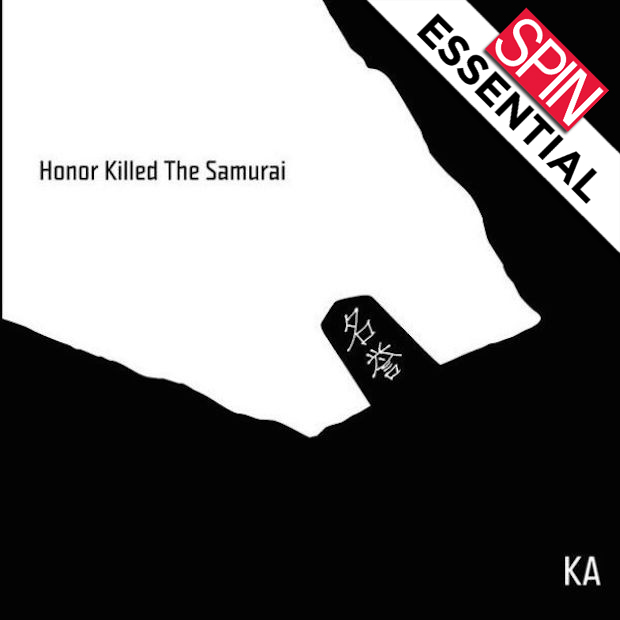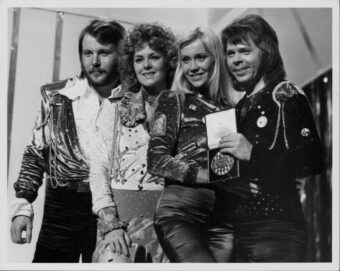Release Date: August 13, 2016
Label: Iron Works
Brownsville rapper Ka’s voice commands close listening. It’s somewhere between a wheeze and a snarl, dead-eyed and cold — dragging with it a street-weary stoicism. His words are to be pored over, often obscured by his tone’s husk. When he strings phrases together, words stick to each other, clumping and creating oddly balancing flows (“Hardest novelist, carving this marvelous / If not, they lovin’ this, the governors pardon us”). He’s a devastating lyricist who can move freely outside the pockets without missing a beat. Then he’ll teeter back into the frame with levelheaded fragments of deadly serious thought.
The man’s fourth full-length, the recently released Honor Killed the Samurai, takes full advantage of this detachment as a spry means to wrestle with weighty subjects like truth and mortality. “Your lies are crucial, they don’t ride, salute you/ But I spill my guts ‘bout the suicide, seppuku,” he raps on “$.” Seppuku, or hara kiri, is a part of the bushido code of honor, the act of ritual suicide as a means of avoiding enemy capture and dying with glory or avoiding the shame of being masterless. Ka, too, often finds glory in self-sacrifice.
Honor Killed the Samurai isn’t really a concept record about the Japanese “way of the warrior,” but it does sample Japanese cinema, strings together tough-to-trace sounds from the orient, and quotes liberally from Inazo Nitobe’s samurai chronicle, Bushido: The Soul of Japan. There’s only a surface-level commitment to the actual code (or even fictionalized bushido); this isn’t a Hattori Hanz? audiobook or even the RZA’s Afro Samurai OST. Even without a clear bushi undercurrent, though, one of Nitobe’s quotes still stands at the center of this album’s ideology: “to die when it is right to die, to strike when to strike is right.” Honor Killed the Samurai explores how the impulses to fight and to live are at odds with each other, and how that internal struggle plays out in a New York City street soldier. Or as Ka describes it on “Conflicted,” Samurai‘s opening track: “Rarely peace, and barely a beast / Armed like a demon.”

Also Read
The 30 Best Albums of 2021
Ka offers a complex window into inner-city violence on Honor Killed the Samurai, one that weighs his gun-toting instincts (“Brought hammers to grammar school — hence the gun talk”) against his desire to escape the terrors of that existence (“I wish we ain’t have to live like this”). His verses are often meditations on how close street life is to death. Few lyrics in 2016 are more poignant than this stolen youth eulogy, from “Ours”: “On days wish I could save the children that we was / We didn’t spare they eyes from all the killings and the drugs.” The tune itself warps slowly into a mash, enhancing the doominess of his deliberately lifeless delivery.
On “Mourn at Night,” which oscillates forward with arpeggiated guitars, Ka recalls raising his sister through hell so she could get her doctorate before remembering his own escape: “We was born in the thorns, few arose / Once a town’s noose, now in soundproofs pursuing golds.” There, he finds an overlap; he’s been fighting to live.
The songcraft on Honor Killed the Samurai is a labyrinth of the same alleyways that connected Ka’s past blueprints: wordy, densely packed rhyme schemes, gloomy samples, and sparse (if any) drums that really allow him to show off his penmanship. But unlike last year’s abstract masterpiece, Days With Dr. Yen Lo — which rarely peppered his chants with outside noise — the arrangements here are heavier and purposeful.
https://youtube.com/watch?v=2S5PwkNOn2s
His production never strays too far from the proven formula though, playing with tones that are all varying degrees of bleak, and it complements his skill set. Ka is such a technically gifted rapper, producer, and master craftsman that it’s easy to wonder why his name never lands atop New York’s Restore the Feeling power rankings. He could be, perhaps, its greatest active MC, a rap-writing phenom with an ear for the sounds that suit him, a willingness to experiment, and a workman’s discipline. But as an enigmatic recluse, an observer who tells tales from the shadows, maybe it’s for the best that he sticks to cerebral, small-scale works like this one.




